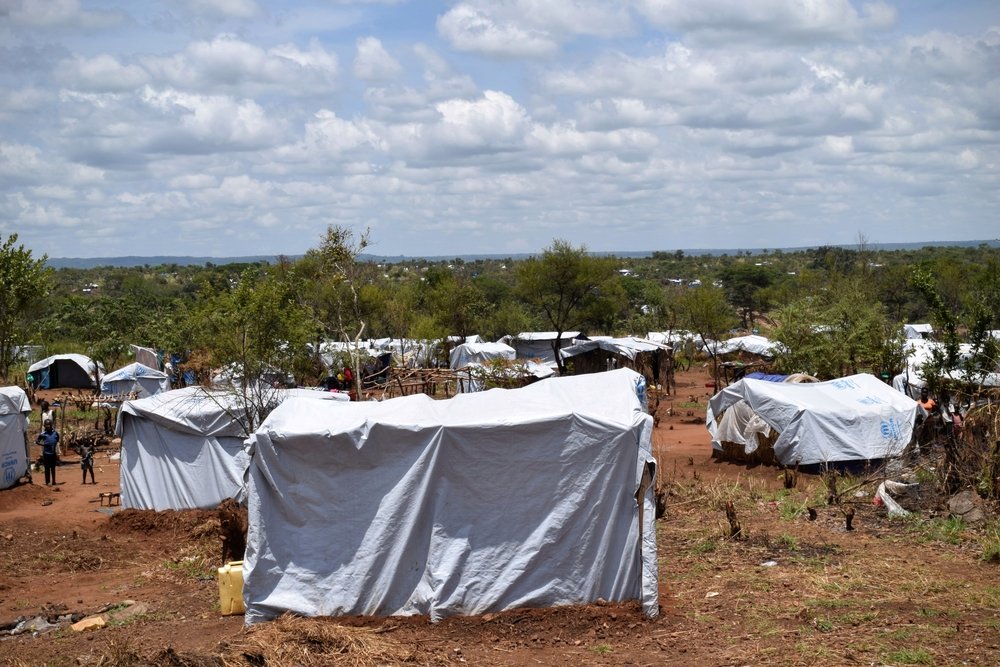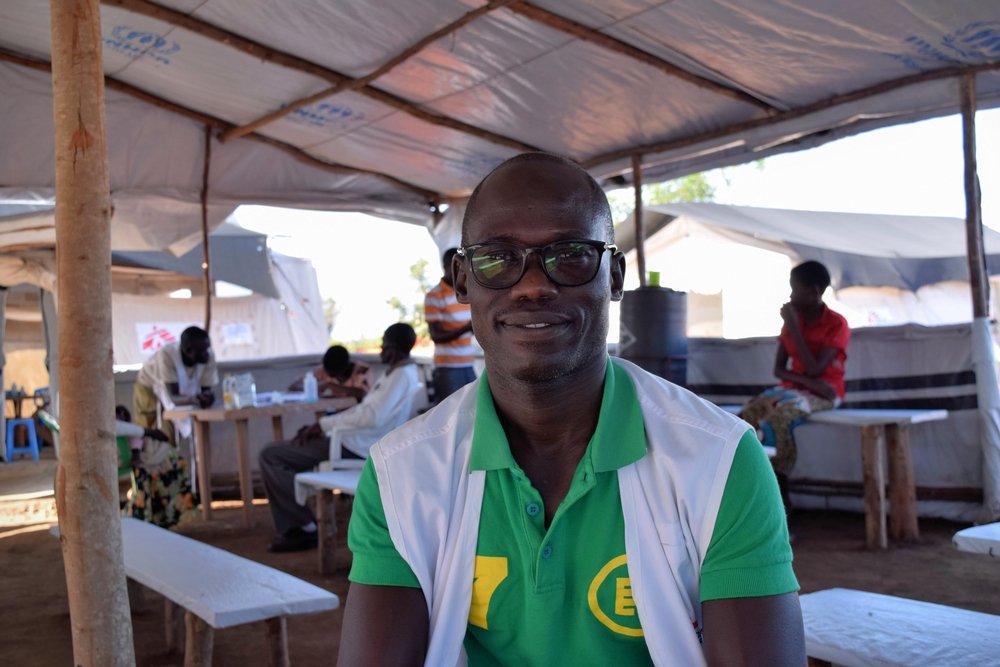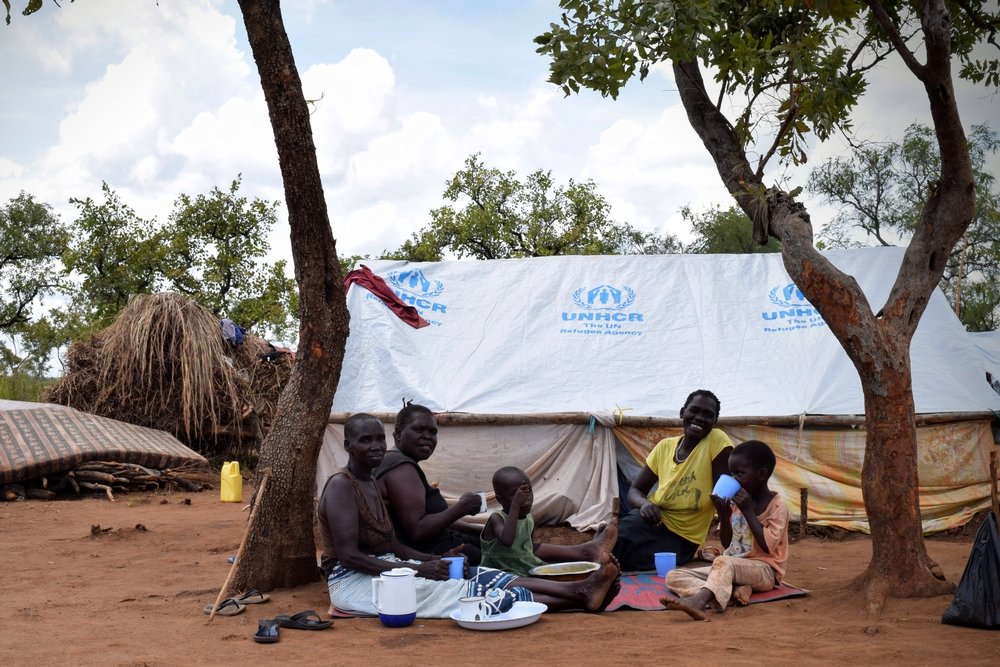Muhammed Marjiid Annual, 36 years old from Uganda is a Clinician at the MSF outpatient clinic in Bidi Bidi refugee camp in Yumbe, Northern Uganda

I arrived in Bidi Bidi refugee camp around five weeks ago. Then the land was just bush. No roads, nothing. The Government and UNHCR were starting to bring a huge influx of refugees from South Sudan here. They were also starting to open up roads, allocate plots of land to refugees and let NGOs like us work here.

My colleagues and I were tasked with getting the MSF clinic up and running. There were six of us, starting to clear the bush, remove tree stumps and starting to build this clinic.
Now I work as a clinician for the site. I start every day with a meeting with the team after any queries are sorted I head to my consultation room and spend the rest of the day seeing patients.
The commonest illness we have here is malaria. But there are also upper respiratory tract infections, diarrhea and skin infections. It's mainly diseased that are linked to living conditions in the camp and the lack of safe drinking water.
When a patient arrives, every one of them is instructed to wash their hands with soap and water at the entrance of the clinic to avoid infections like cholera and dysentery. Then they get triaged and they’re given a health education session. We explain where they can get clean water or why they should boil water before drinking it.
Then they get weighed and referred to a clinician. We might do tests to see if they have malaria, they might need to go to our observation room for a few hours depending on how ill they are or to go to our pharmacy room to pick up medicine. Serious cases get referred to a nearby hospital.
The living conditions in this refugee camp aren’t good.
Yesterday morning we were on our way to the clinic when some refugees stopped us on the road. They told there was a mother in labor. When we found the mother she was in a really bad state. The baby was almost out.
So we had to go inside her ‘house’ and help how we could, there and then. The shelter was very small and dark, made of sticks and tarpaulin. They didn’t even have any tarpaulin on the floor; it was just bare earth. They had put down some blankets and that is what the women were lying on to give birth, but I think they had been sleeping there too. There was nowhere to put mosquito nets and no ventilation. There were three adults in the shelter. I think they were all staying there with their families.
Most of our patients tell me they left South Sudan because of insecurity. They feared for their lives. There are tribal clashes and violence from opposing sides. People are scared they could be attacked at any time. Someone told me that he returned from work one day to find his town was deserted.

He didn’t see a single person. He went up to his house and there was no one there. Perhaps people had fled due to violence or it had been evacuated, he doesn’t know but it was frightening. He tried to call his wife and his wife’s family but he couldn’t get through.
He decided to flee to Uganda and tried to contact them for a week from here with no luck. So he went back to Juba on foot but he still couldn’t find them. In the end, he decided to come back to Uganda, and he’s still here now, but he doesn’t know where his family is.
That’s just one person’s experience, but there are so much more. There are around 40,000 people in this one section of the camp where our clinic is, and it’s already full just weeks after opening. Thousands of more people are arriving in Uganda every day.
At least people are saying it is safe here. They’re relieved they made it here. They don’t want to go back to South Sudan and there’s a hope they can start to rebuild their lives here from scratch.
Find out more about MSF's work in Uganda.